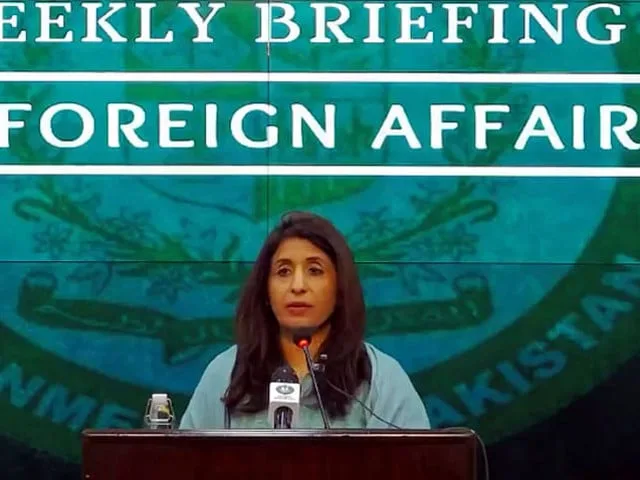Pakistan has extended official invitations to all heads of government of the Shanghai Cooperation Organisation (SCO) member states, including Indian Prime Minister Narendra Modi, for the upcoming Council of Heads of Government (CHG) meeting in Islamabad. The event, scheduled for October 15-16, 2024, will bring together leaders from across the region to discuss economic, security, and socio-cultural cooperation.
Read More: Saudi Arabia Bans Sick Pilgrims from Hajj 2025
Foreign Office Spokesperson Mumtaz Zahra Baloch confirmed during a weekly briefing that invitations had been sent, and several confirmations had already been received. Addressing the issue of diplomatic tensions, Defence Minister Khawaja Asif emphasized that as the host nation, Pakistan has no authority to exclude any member state. “Not extending an invitation to any member state would be inappropriate, and the SCO would not accept such a move,” he said. The summit is expected to feature ministerial meetings focusing on regional economic integration and security cooperation.
Kashmir Issue Continues to Strain Bilateral Relations
Relations between Pakistan and India remain strained, primarily due to the longstanding Kashmir dispute. Islamabad reiterated its stance that Jammu and Kashmir is an internationally recognized disputed territory, as outlined by United Nations Security Council (UNSC) resolutions, which call for a plebiscite to determine the region’s future in line with the will of its people.
The Indian Ministry of External Affairs recently addressed media speculation regarding Modi’s attendance, stressing that no official decision had been made. Baloch highlighted that any alternative processes would not substitute the right of self-determination for the Kashmiri people. Amidst these tensions, both nations continue to navigate a complex diplomatic landscape marked by the ongoing conflict over Kashmir and other bilateral security issues.
No Talks with TTP as Pakistan Reinforces Counterterrorism Efforts
On the security front, Baloch reiterated that Pakistan has no plans to engage in dialogue with the banned Tehreek-e-Taliban Pakistan (TTP), citing international reports confirming the presence of terror groups in Afghanistan. “We expect the Afghan authorities to take robust action against these terror groups,” she said, underlining Islamabad’s stance on not negotiating with militants involved in attacks against Pakistanis and foreigners.
In response to rising terror incidents, Pakistan launched a renewed counterterrorism drive, Azm-e-Istehkam (Resolve for Stability), in June 2024. This initiative aims to fortify national security and intensify actions against militant groups that threaten state stability.
CPEC Projects: A Positive Force Amid Debt Misconceptions
Baloch also addressed questions about the China-Pakistan Economic Corridor (CPEC), emphasizing its transformative impact on Pakistan’s national development. “CPEC enjoys widespread support across all provinces and political lines,” she noted, adding that the project has contributed positively and transparently to the country’s infrastructure and economic landscape.
Contrary to concerns about rising debt, Baloch clarified that the portion of Pakistan’s public debt related to CPEC projects is relatively small, with favorable terms including longer maturity periods and low interest rates. She reaffirmed Pakistan’s commitment to ensuring the safety and security of all Chinese nationals and investments linked to CPEC, stressing that the initiative remains a cornerstone of Pakistan’s economic growth strategy.














